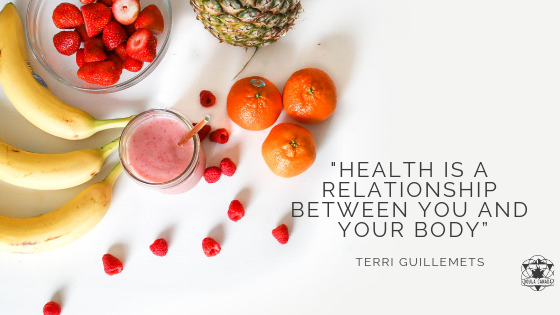[vc_row][vc_column][mk_padding_divider][/vc_column][/vc_row][vc_row][vc_column][vc_column_text css=”.vc_custom_1679509016754{margin-bottom: 0px !important;}”]So let’s talk affirmations. The concept of self-affirmation isn’t by any means complex or far-fetched. Positive affirmations are statements or phrases that, when repeated daily, can help challenge negative thoughts and boost self-confidence.
First, a little science.
To understand how positive affirmations work and how you can make the most of them, we have to familiarize you with neuroplasticity, which is the ability to rewire the brain. Despite being one of the most sophisticated and complex structures in the known universe, the human brain can get a little mixed up on the difference between reality and imagination. This very loophole serves as the basis of self-affirmation. To elaborate, when you repeat affirming statements daily, you’re helping your brain create a mental image of the goal you’re trying to achieve or the version of yourself you are aspiring to become.
Affirmations require regular practice if you want to make lasting, long-term changes to the ways that you think and feel, even for birth. There is MRI evidence suggesting that certain neural pathways are increased when people practice self-affirmation tasks (Cascio et al., 2016). If you want to be super specific, the ventromedial prefrontal cortex—involved in positive valuation and self-related information processing—becomes more active when we consider our personal values (Falk et al., 2015; Cascio et al., 2016). There is also some reasearch asserting that affirmations can reduce the rate of medical interventions during childbirth.Empirical studies suggest positive affirmations can:
- Decrease health-deteriorating stress (Sherman et al., 2009; Critcher & Dunning, 2015);
- Help change the way we view “threatening” messages with less resistance and perception (Logel & Cohen, 2012);
- Self-affirmation has been demonstrated to lower stress and rumination (Koole et al., 1999; Weisenfeld et al., 2001).
Think of it this way. When you repeat the same thoughts in your head, positive or negative, you start to believe them and your brain forms a pathway of neurons. There is a popular saying: Your words become your world.
Anyway most importantly the purpose of affirmations in labour is actually quite simple: Birth affirmations are sayings or statements designed to change your mindset and help you maintain a positive outlook or mood regarding the birth process.
Preparing your mind for labour and birth is really important, and it is no different from eating well or working on specific exercises to prepare your body for labour.
In order for birth affirmations to work, you need to keep a few things in mind:
You have to believe what you’re saying
When you have a negative thought or fear, recognize it and deal with it first. This study found that participants with low self-esteem who repeated the phrase “I am lovable” actually had more negative emotions and still didn’t feel lovable because they didn’t really believe what they were saying.
Try to get to the root of your fears or negativity around birth. Talk to a counsellor, listen to or read positive birth stories and surround yourself with other positive influences.
Keep in mind that sometimes we have to keep saying affirmations over and over again until we do believe it, which brings me to my next point.
Repeat, repeat, repeat!
Create a plan to practice your birth affirmations daily or a few times a week leading up to your birth. Find an affirmation meditation you enjoy, write them in a journal, and practice with your partner, doula or support person, you can even record your own voice memo practicing your affirmations to listen back. Practicing during your pregnancy will make using these affirmations during labour more effective.
They are not just for vaginal birthing.
There’s a common misconception that affirmations or hypnobirthing tracks are only helpful for people planning for an unmedicated birth experience. Plus affirmations are a great tool to complement other forms of pain management in your plan (think about that long drive to the hospital before you get an epidural).
Make them visible: Once your contractions pick up, channelling your focus on affirmations will be more challenging. Print out a copy of your affirmations, save them to your phone, or pack affirmation cards (see the downloadable pdf) in your bag will give you a visual point of reference to help keep your focus on your affirmations as you ride the waves of labour.
Now that you’ve got a sense of how affirmations work, where can you find the right positive messages for you? We have a downloadable PDF with a few ( ALSO for doulas this deck is customizable you can add your logo) you can google, or you can ask friends and family to help you out.
What matters is that they are meaningful and believable for you![/vc_column_text][/vc_column][/vc_row][vc_row][vc_column][mk_padding_divider][/vc_column][/vc_row][vc_row][vc_column][vc_btn title=”Customizable CANVA affirmation deck ” color=”turquoise” link=”url:https%3A%2F%2Fwww.canva.com%2Fdesign%2FDAFd8HHbv8Y%2F_hEn_HPs8cN6DuVZfUaADw%2Fview%3Futm_content%3DDAFd8HHbv8Y%26utm_campaign%3Ddesignshare%26utm_medium%3Dlink%26utm_source%3Dpublishsharelink%26mode%3Dpreview|target:_blank”][/vc_column][/vc_row]


 Erin is a Registered Holistic Nutritional Consultant (R.H.N.) based in Halifax, Nova Scotia. She works with women all across Canada to help them optimize their nutrition throughout their pregnancy and breastfeeding journey. As a mom to a very active 2.5 year old, and currently expecting her second baby in June 2019, Erin has a unique understanding of the needs of pregnant and breastfeeding women. Her focus is primarily on education and providing her clients with realistic suggestions that fit their lifestyle and dietary preferences. When she isn’t working with clients, Erin enjoys baking and spending time outside with her family.
Erin is a Registered Holistic Nutritional Consultant (R.H.N.) based in Halifax, Nova Scotia. She works with women all across Canada to help them optimize their nutrition throughout their pregnancy and breastfeeding journey. As a mom to a very active 2.5 year old, and currently expecting her second baby in June 2019, Erin has a unique understanding of the needs of pregnant and breastfeeding women. Her focus is primarily on education and providing her clients with realistic suggestions that fit their lifestyle and dietary preferences. When she isn’t working with clients, Erin enjoys baking and spending time outside with her family.